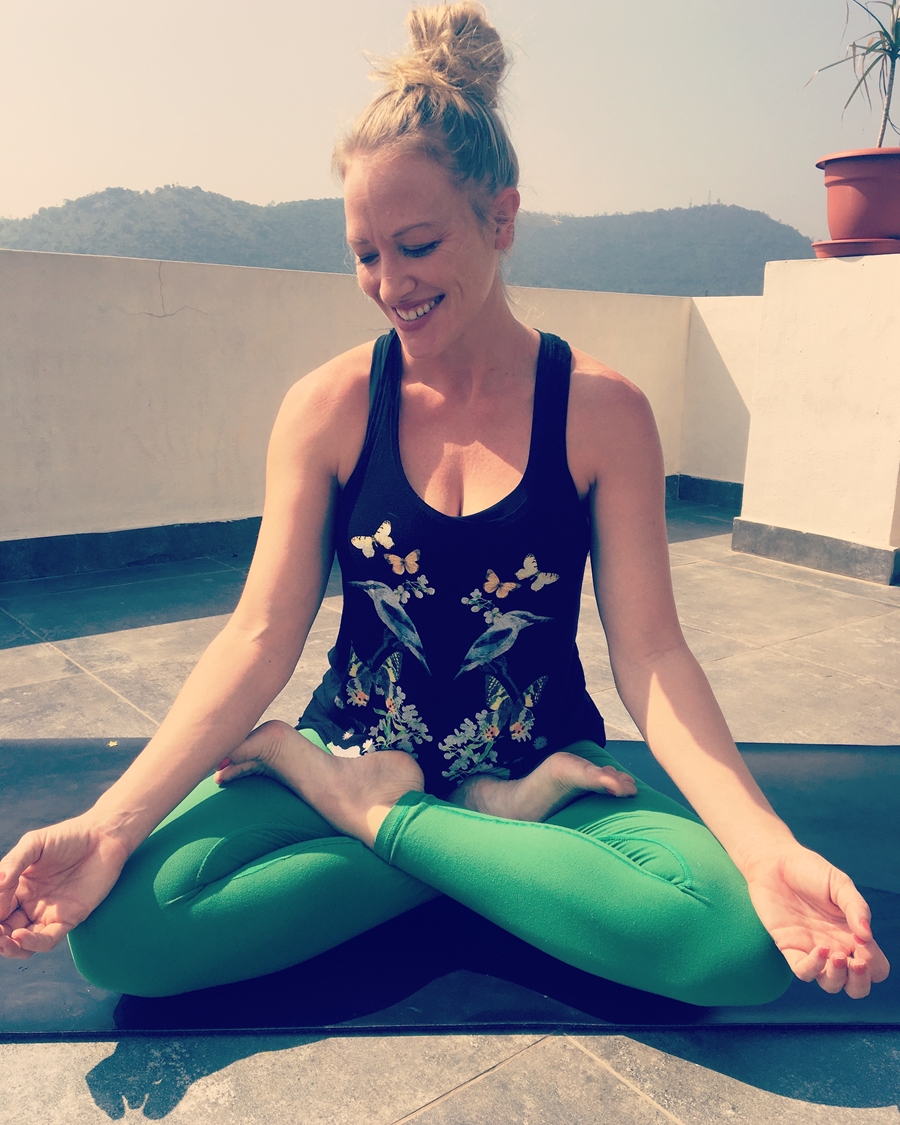After college, Erin Lorenzen worked as an art teacher at the Boys and Girls Club in the Juvenile Detention Center in Alexander, Arkansas.
She realized that art helped the teenage residents process their frustrations and traumas. But that wasn't surprising to Lorenzen.
"Art has always been an outlet for me to voice things I was unable to discuss elsewhere — especially at that age — and I was happy to share that with residents there," she said.
From there, Lorenzen found herself teaching in environments that were rehabilitative in some way.
"First teaching art, then later, teaching yoga," she said. "Helping provide a safe space for expression has always been of interest to me."
Lorenzen, who has an undergraduate degree in art and Spanish, is now pursuing a master's degree in counseling at the University of Arkansas' College of Education and Health Professions. Her concentration is in Psychiatric Rehabilitation, which involves both counseling and rehabilitation practices.
Before COVID-19 forced her to stop, she taught yoga to women at the Northwest Arkansas Community Correction Center and those in recovery at a residential home, many of whom are transitioning from prison back into everyday life.
"I really enjoy working with women," Lorenzen said. "I think women, especially, store so much of the traumas they have experienced in their bodies. Society constantly tells women to keep their troubles on the inside, shrug it off, smile. Experiencing the benefits of yoga and art practices for myself for many years made me want to share that with others."
The response at each facility was affirming, she said. At the correction facility, 20 to 40 women participated in Lorenzen's yoga classes. She received donations of mats, blankets, bolsters, and eye pillows for residents to use.
"We didn't have phones to distract us. We listened to music sometimes. The biggest request was Krishna Das," she said.
The yoga class at the rehabilitation house was more intimate. Only eight women live there. The group therapy room doubles as a yoga room. Lorenzen also guided the residents in art therapy.
She hopes to be working with them again soon, virtually. To prepare for this, Lorenzen is taking a specifically-designed class for mental health professionals to learn more about working with clients while distancing.
She said it's important that her classes continue for the women in the rehabilitation house, especially now.
"I don't know if people realize how high the cards are stacked up against most of those who are incarcerated, how ingrained the cycle of poverty and addiction is, and how much work it takes to get out of the cycle," she said. "I feel so lucky to act as a space holder for healing and hope to continue."
This story is the latest in a series called the Dean's Spotlight, featuring outstanding students in the College of Education and Health Professions. Visit COEHP's online magazine, the Colleague for more news from the six units that make up the College. Visit the Counselor Education and Supervision page for more information on COEHP's counseling programs.
Topics
Contacts
Shannon Magsam, director of communications
College of Education and Health Professions
479-575-3138,
